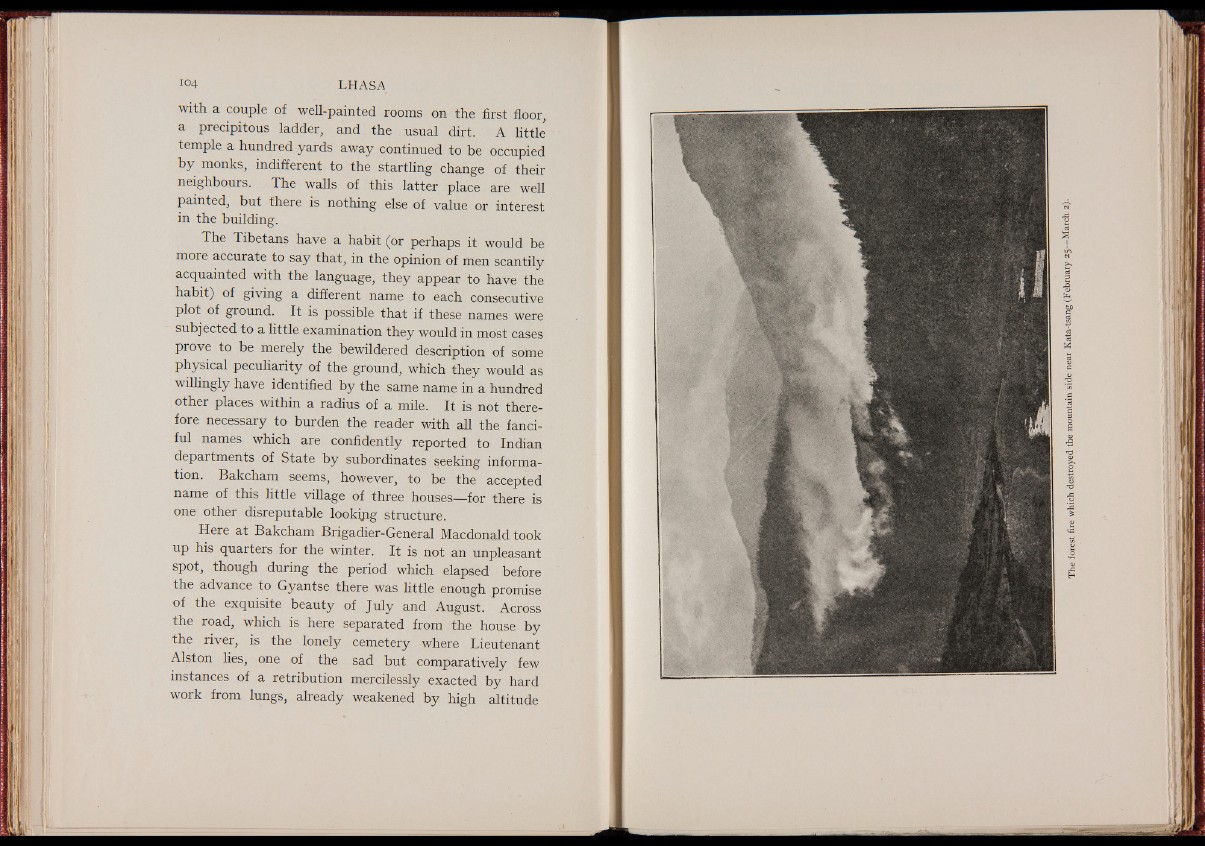
with a couple of well-painted rooms on the first floor,
a precipitous ladder, and the usual dirt. A little
temple a hundred yards away continued to be occupied
by monks, indifferent to the startling change of their
neighbours. The walls of this latter place are well
painted, but there is nothing else of value or interest
in the building.
The Tibetans have a habit (or perhaps it would be
more accurate to say that, in the opinion of men scantily
acquainted with the language, they appear to have the
habit) of giving a different name to each consecutive
plot of ground. It is possible that if these names were
subjected to a little examination they would in most cases
prove to be merely the bewildered description of some
physical peculiarity of the ground, which they would as
willingly have identified by the same name in a hundred
other places within a radius of a mile. It is not therefore
necessary to burden the reader with ah the fanciful
names which are confidently reported to Indian
departments of State by subordinates seeking information.
Bakcham seems, however, to be the accepted
name of this little village of three houses— for there is
one other disreputable lookijig structure.
Here at Bakcham Brigadier-General Macdonald took
up his quarters for the winter. It is not an unpleasant
spot, though during the period which elapsed before
the advance to Gyantse there was little enough promise
of the exquisite beauty of July and August. Across
the road, which is here separated from the house by
the river, is the lonely cemetery where Lieutenant
Alston lies, one of the sad but comparatively few
instances of a retribution mercilessly exacted by hard
work from lungs, already weakened by high altitude
The forest fire which destroyed the mountain side near Kata-tsang (February 25- March 2).